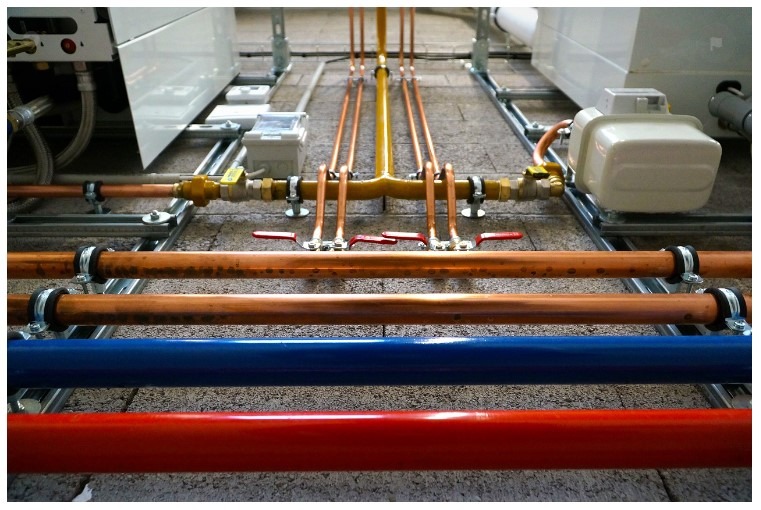Efficient heating systems are essential for maintaining a comfortable home environment, especially in colder climates. By optimizing the performance of these systems, homeowners can enjoy a warm living space while reducing energy costs and minimizing environmental impact. High-quality components, like Nordyne parts, play a crucial role in ensuring the effective operation of home heating systems. This article provides an in-depth look at strategies for enhancing the efficiency of home heating systems.
Maximizing efficiency in home heating systems is a comprehensive approach that involves understanding various system types, implementing advanced maintenance, integrating renewable energy, and more. Let’s detail these areas to provide a complete guide on enhancing your home heating system’s efficiency.
Understanding the Different Heating Systems and Their Efficiency
Different heating systems have unique characteristics that affect their efficiency and suitability for your home. For instance, gas furnaces are standard due to their cost-effectiveness in areas where gas is cheap. Electric furnaces, while more efficient in energy conversion, might be more expensive due to higher electricity costs. Though less common, oil furnaces can be an option in areas without natural gas service. Understanding these subtleties helps you choose an efficient and economical system for your specific situation.
Advanced Maintenance Techniques
Going beyond basic maintenance, advanced techniques can greatly enhance heating system efficiency. This includes:
- Ductwork Inspection and Sealing: Ensuring that ducts are properly sealed and insulated, especially in unconditioned spaces, prevents heat loss, increasing overall system efficiency.
- Calibrating Thermostats: Regular calibration ensures accurate temperature settings, preventing the system from over or under-heating.
- Regular System Tune-ups: Having a professional conduct annual tune-ups can improve system efficiency and longevity.
Integrating Renewable Energy Sources
Incorporating renewable energy, such as solar power, can significantly reduce your dependence on traditional heating methods. Solar panels can directly power electric heaters or be used in solar thermal systems to assist in water heating for boilers. This not only saves on energy costs but also reduces the environmental impact of home heating.
Optimizing Radiant Floor Heating
Optimizing the system for homes with radiant floor heating can lead to significant energy savings. Adjusting water temperatures according to external weather conditions and ensuring proper insulation beneath the heating elements can improve the system’s efficiency.
Educational Programs and Incentives
Awareness and education are key to adopting energy-efficient practices. Many regions offer programs that educate homeowners about efficient heating practices and provide incentives, such as rebates or tax credits, for installing high-efficiency systems or improving energy.
Leveraging Modern Insulation Materials
The right insulation is crucial in maintaining a home’s heat. Advances in insulation technology, like spray foam, offer superior coverage and thermal resistance compared to traditional materials. Properly insulating walls, attics, and floors can prevent heat loss, keeping your home warm with less energy expenditure.
The Role of Smart Home Technology
Smart home technologies extend beyond thermostats. Sensors can detect occupancy and adjust heating accordingly, while smart vents can direct heat to occupied rooms. Integrating home automation systems can create a holistic approach to heating efficiency, allowing seamless control over various aspects of the home’s environment.
Enhanced Ventilation Strategies for Heat Conservation
Proper ventilation is key to maintaining a healthy indoor environment, but it often leads to significant heat loss. Employing innovative ventilation strategies like Heat Recovery Ventilation Systems (HRV) and Demand-Controlled Ventilation (DCV) can help conserve heat while ensuring good air quality. HRVs efficiently exchange heat between incoming and outgoing air, conserving energy that would otherwise be used to warm the incoming air. DCV, using sensors to adjust ventilation based on occupancy, further optimizes energy usage. Additionally, balanced ventilation strategies, complemented with strategic window management, can utilize natural ventilation during milder days, reducing the reliance on mechanical systems.
Integration of Low-Temperature Heating Systems
Low-temperature heating systems represent a significant advancement in home heating efficiency. Operating at lower temperatures than traditional systems, they are particularly efficient when combined with high-performance building envelopes. These systems, including low-temperature radiators and underfloor heating, are compatible with modern boilers and heat pumps. They are also well-suited for integrating renewable energy sources like solar thermal systems or geothermal heat pumps. Despite a potentially higher initial setup cost, the long-term benefits and cost savings due to their efficiency and lower maintenance needs make them a worthwhile investment.
Advanced Insulation Techniques and Materials
Advancements in insulation materials and techniques offer substantial energy-saving benefits. Aerogel insulation, known for its lightweight and superior insulating properties, is ideal for retrofitting older homes with limited insulation space. Vacuum Insulation Panels (VIPs) provide high thermal resistance with minimal thickness, perfect for space-constrained areas. Additionally, Phase-Change Materials (PCMs) incorporated into building materials can regulate indoor temperatures by absorbing and releasing heat, reducing the need for active heating. Tailoring insulation strategies to specific needs, identified through professional energy audits, can significantly enhance a home’s overall heating efficiency. This targeted approach ensures that upgrades like attic insulation, wall insulation, or window and door sealing effectively address the home’s unique thermal challenges.
Conclusion
In conclusion, the efficient operation of home heating systems involves a comprehensive approach, including regular maintenance with quality components like Nordyne parts, smart thermostat usage, improved insulation, system upgrades, supplementary heating, and homeowner education. By implementing these strategies, homeowners can enjoy a comfortable, warm living environment while minimizing energy costs and contributing to environmental sustainability. Efficient home heating balances technology, proactive maintenance, and informed usage, ensuring comfort and energy efficiency throughout the colder months.

